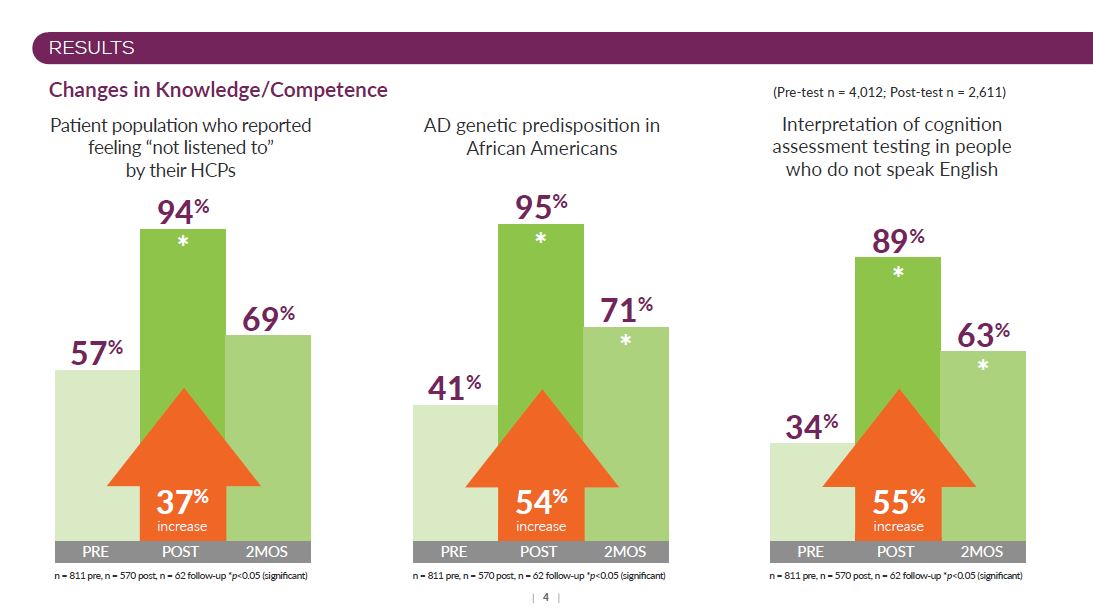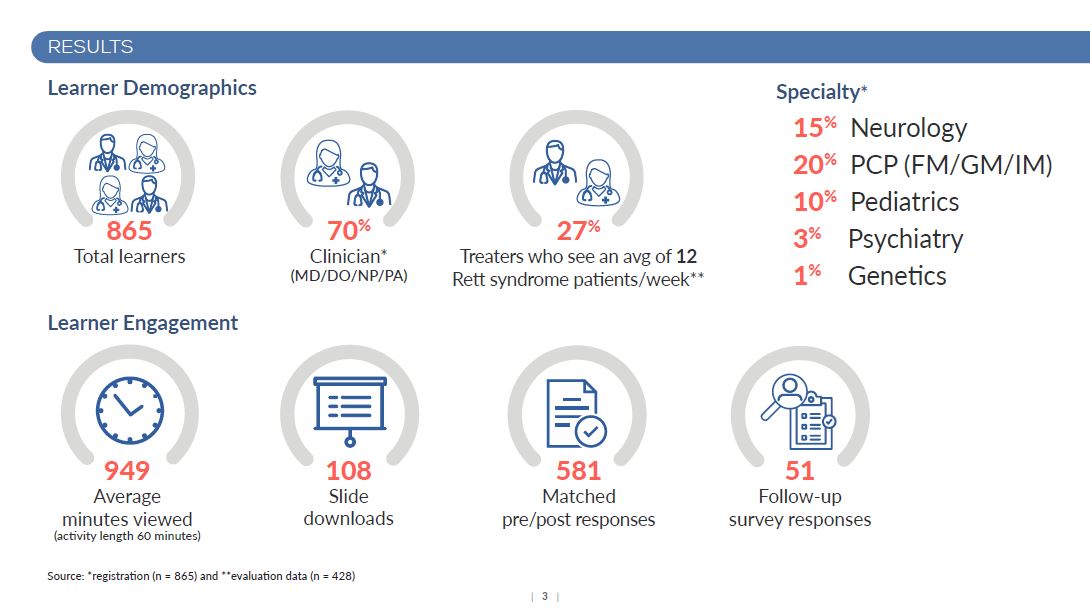The digital education firm PlatformQ Health had two posters accepted at the 2023 American Academy of Neurology Annual Meeting, held in Boston from April 22-27, 2023. The company regularly shares outcomes from its health care provider (HCP) and patient-focused educational programs. During the annual meeting, PlatformQ Health’s posters focused on the results of recent HCP educational programs focused on Rett syndrome and Alzheimer’s disease.
Assessing Equity in Alzheimer’s Care CME program
Developed in partnership with UsAgainstAlzheimer’s, Bright Focus Foundation, and BlackDoctor.org, the first initiative was focused on helping HCPs to reduce disparities in brain health. To that end, the program educated HCPs about the increased risks and burdens that various ethnic and racial groups experience with Alzheimer’s disease, as well as how to incorporate effective outreach strategies for underserved populations.
Featuring expert faculty from Wake Forest School of Medicine, Montefiore Medical Center, Albert Einstein College of Medicine, Arizona State University, and UsAgainstAlzheimer’s, the program encompassed two 60-miute activities that highlighted the faculty members’ experience with effective outreach strategies, as well as insights from a caregiver.
The first poster session assessed the influence that this live CME program had on HCPs’ awareness of these issues. Data was collected through polls taken immediately after the session as well as two months later.

Click here to download the full poster.
Of the 1,893 learners who attended, 63% were MDs, NPs, or PAs. 24% of the attendees specialized in psychiatry while 9% specialized in neurology. Polling demonstrated:
- 54% increase in knowledge about the genetic predisposition African American patients have for Alzheimer’s disease
- 55% increase in knowledge about performing cognitive assessment testing in patients who do not speak English
Based on these results, the data supports findings that live CME programming helps prepare HCPs to provide more equitable care for patients with Alzheimer’s disease, better recognize risk factors related to race and ethnicity, and address barriers to access for all patients.
Understanding the Impact of Two-Year Rett Syndrome Programming
The second poster session gauged the effect of two years of CME programming focused on managing Rett syndrome. Emerging therapies for this condition make it all the more important that children be diagnosed early to maximize the benefits of treatment as well as multidisciplinary care. Featuring faculty from Boston Children’s Hospital, the National Organization for Rare Disorders, and the International Rett Syndrome Foundation, the two 60-minute CME activities educated HCPs about
- Early signs of Rett syndrome
- Therapeutic agents
- The need for coordinated, comprehensive care

Click here to download the full poster.
Of the 865 learners attending the sessions, 70% were clinicians. Learners were highly engaged, consuming an average of 949 average minutes of the programming. Pre- and post-session polling demonstrated a strong improvement in competency. Prior to the programming, 84% noted that they were “somewhat confident to not confident” in their ability to diagnose Rett syndrome, and 86% said they were “somewhat confident to not confident” in their ability to manage the disease. After the sessions, 70% of learners reported that they were more comfortable with their ability to discuss investigational therapies with their patients, and 59% believed that participating in the programming had a positive impact on their patients.
Although the data supported a positive impact of the online CME programming, baseline knowledge and competence were similar in years 1 and 2, which indicates that additional education would be useful to support lasting improvements in Rett syndrome care.

